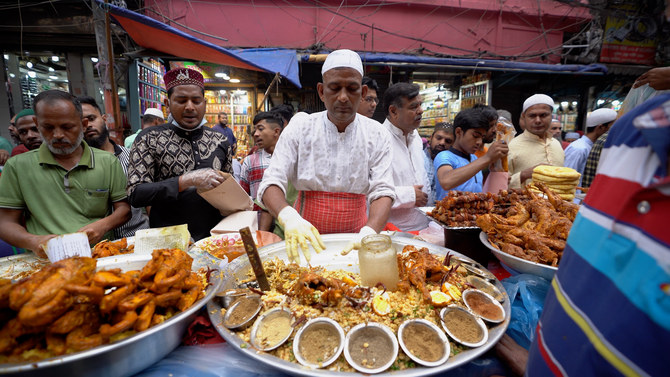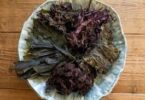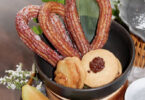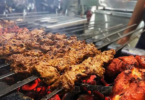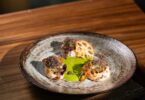Shehab Sumon
DHAKA: In the dusty and congested streets of Dhaka’s old town, a signature dish is a fast-breaking staple, blending Bengali and Middle Eastern flavors in strict adherence with a recipe dating back to the Mughal Empire.
A popular street food of the historical part of Bangladeshi’s capital, boro baper polay khay is arguably not for the faint-hearted. A must-have delicacy during the holy month of Ramadan, it is generously served, appetizing but loaded with cholesterol and calories, cooked with an assortment of at least a dozen spices and presented as what can best be described as an amalgamation of many dishes in one.
It consists of rice, lentils, chickpeas, beef or mutton, and is spiced with cumin, coriander, and cardamom. It is served with a generous amount of gravy, made from a mixture of yogurt, onion, and green chilies, and is garnished with crispy fried onions and fresh coriander leaves.
Boro baper polay khay is believed to have been created by the workers of the Boro Bari Mosque in Old Dhaka some four centuries ago. The name of the dish literally means “food eaten by the son of a rich father.”
“I prepare it with 12 ingredients and 12 spices,” said Mohammed Salekin, one of many street food vendors specializing in boro baper polay khay.
“I prepare the food with pure ghee. People find it tasty, and they come here again and again.”
He is the third generation of cooks involved in the business nested in vibrant Old Dhaka, an area known for its Mughal-era architecture and often frequented by locals and tourists.
Cook Amir Hussain Jewel, who is competing to grab his market share of customers through small adjustments to the signature dish, said he avoids adding beef to the dish to make it more widely palatable.
“I prepare boro baper polay khay with 12 ingredients and 12 spices except for beef so that all people, including Hindus and Muslims, can taste it,” he told Arab News.
Despite soaring inflation and a rise in the cost of ingredients that have led to an increase in the price of one serving to $8 from $6 last year, foodies remain unfazed in ordering the signature dish, saying it is an all-in-one treat.
“You can taste all the flavors of old Dhaka in one item. This is the specialty of this food,” said customer Dr. Omar Faruk, for whom the dish is “a tradition of old Dhaka.”
“It’s like a custom that every Ramadan we will come here at least once and take the food home. It’s a food that represents tradition.”
And the delicacy’s unique flavor compels those who have tasted it once to become repeat customers. “It is very delicious,” said another customer, Happy Akter, while buying boro baper polay khay for iftar.
“That’s why I take it every year. Boro baper polay khay is something unique in taste, like its name.”

